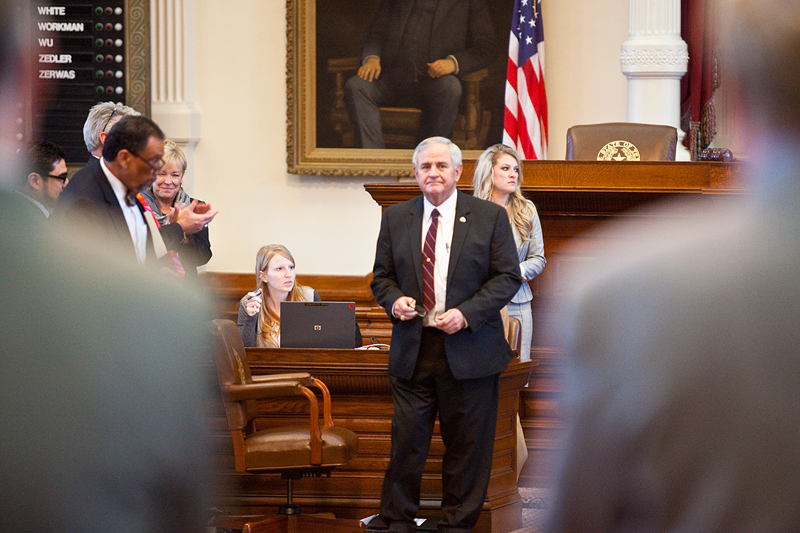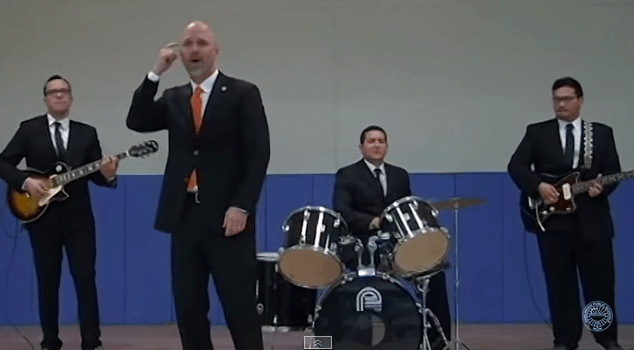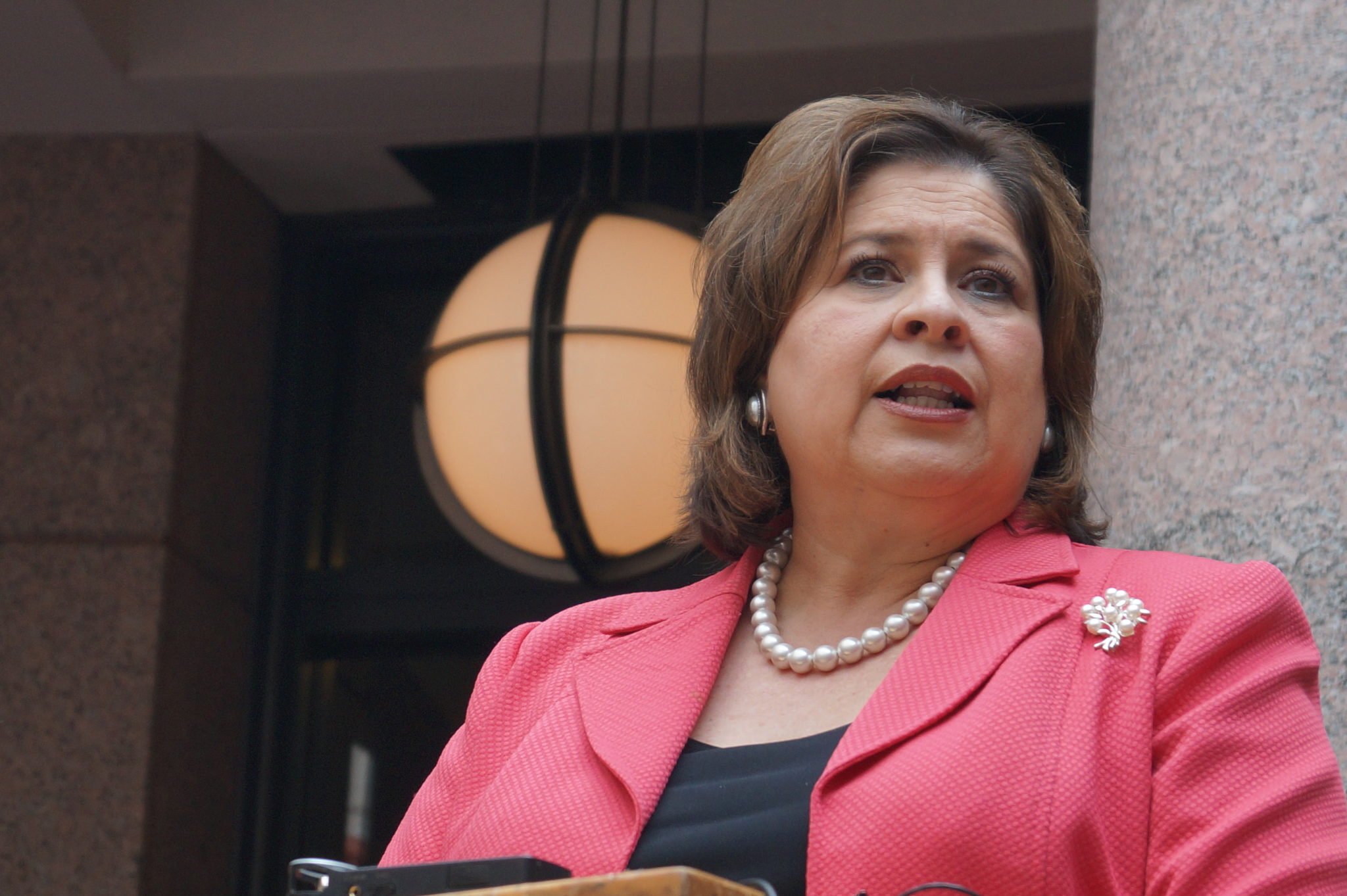
House Approves Major Bill Cutting Testing, Adding Career Focus to Degree Plans
Above: House members stand to applaud Rep. Jimmie Don Aycock (R-Killeen) after hours of debate on his omnibus school bill House Bill 5.
After hours of debate on more than 100 amendments, the House passed its omnibus education bill Tuesday, sharply reducing the end-of-course exams high schoolers take and changing high school graduation plans to emphasize career and technical skills.
Only Rep. Mark Strama (Austin-D) and Rep. Naomi Gonzalez (D-El Paso) voted against House Bill 5.
The passage is a win for many advocates against the high-stakes testing that has taken over school days. Currently students can graduate with one of three degree plans, but those who choose the minimum degree plan aren’t eligible to enter a four-year university. Under HB 5, all students will be eligible for universities. Only students who pursue the “distinguished” path, though, are eligible for automatic entrance to a state university under Texas’ Top 10 Percent rule.
Students must currently pass 15 end-of-course exams to graduate high school on the state’s recommended plan but HB 5 reduces that to five end-of-course exams–algebra I, biology, U.S. history, and reading and writing tests for English II.
From around 10 a.m. to 7 p.m., bill author Jimmie Don Aycock (R-Killeen) presided over a copy of his bill at the front of the House, deciding which amendments he’d allow onto his bill. After months of gathering input and shepherding his bill, Aycock allowed 50 amendments onto HB 5 Tuesday, and didn’t lose a single vote on a amendment he hoped to block.
The amended bill includes new requirements that STAAR tests be given later in the year—no sooner than the third week of May—and that copies of the test be released annually instead of every three years. (Strama introduced both of those.)
Amendments approved back-to-back by Rep. Joe Deshotel (D-Beaumont) and Rep. Chris Turner (D-Arlington) would bar anyone working for a test contractor like Pearson from making political contributions or serving on advisory committees for the state. The amendments appear targeted at Pearson lobbyist Sandy Kress, who serves on a Texas Education Agency committee on accountability.
Rep. Mike Villarreal (D-San Antonio) tacked on an amendment limiting the benchmark tests school districts can give to two benchmarks per STAAR test. The House also approved his amendment that requiring a review of the bill’s effects on graduation rates and college readiness.
Villarreal said he supports HB 5 because he’s seen how vocational opportunities help students in his district. He said some students who otherwise wouldn’t be interested in school get to see how classroom concepts apply to the real world, and find high-paying jobs after graduation.
Rep. Diane Patrick (R-Arlington) voted for the bill, but tried in vain to add protections for rural students in small schools, who she worried wouldn’t have enough course options to finish one of the “endorsements” required for a distinguished diploma.
“My concern is that we have created a plan that is not available, not attainable to all students,” Patrick said. Some representatives suggested distance learning would solve that problem.
Gonzalez said she voted against the bill because it did not reduce testing in pre-K through 8th grade and she did not think the degree plans offered enough rigor, a concern that’s causing even greater waves from the higher education community on Senate Bill 3.
“I felt like there was an either-or type of situation where you’re either going to college or trying to have a technical degree,” Gonzalez said. “I think that we can still prepare students for college and give them a technical career. So I just felt that there were provisions in there that were good, but we still could have done more.”
Strama sparked the day’s toughest debate around noon, with a proposal to make the college-ready “distinguished” path the default for students, reflecting concerns from higher ed leaders and some Latino and African-American members that HB 5 would leave too many minority students unprepared for college. Strama’s amendment failed, and he eventually voted against the bill.
After the vote, Strama told the Observer that while there are many issues with standardized testing in Texas, the problems are with the execution of the tests and not with the number of end-of course exams.
“I’m afraid that in the upper level coursework we’re going to have wildly varying degrees of rigor and achievement across the state,” he said. “It is more important than ever that we measure kids with one yardstick.”
As the state’s low-income population continues to grow, Strama said it’s more important that students in poor schools are held to the same tough standards as all students.
“If we can’t get those kids to pass these tests, we’re going to pay a high price, and saying they don’t have to pass the test isn’t going to solve the problem,” Strama said.


